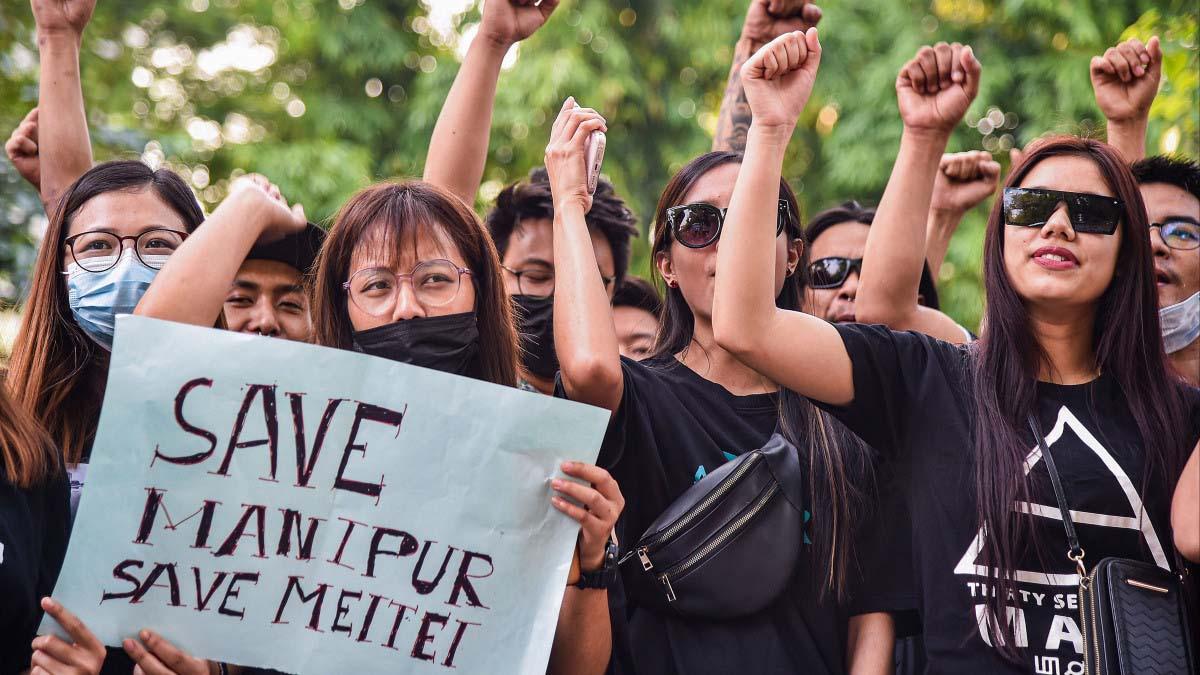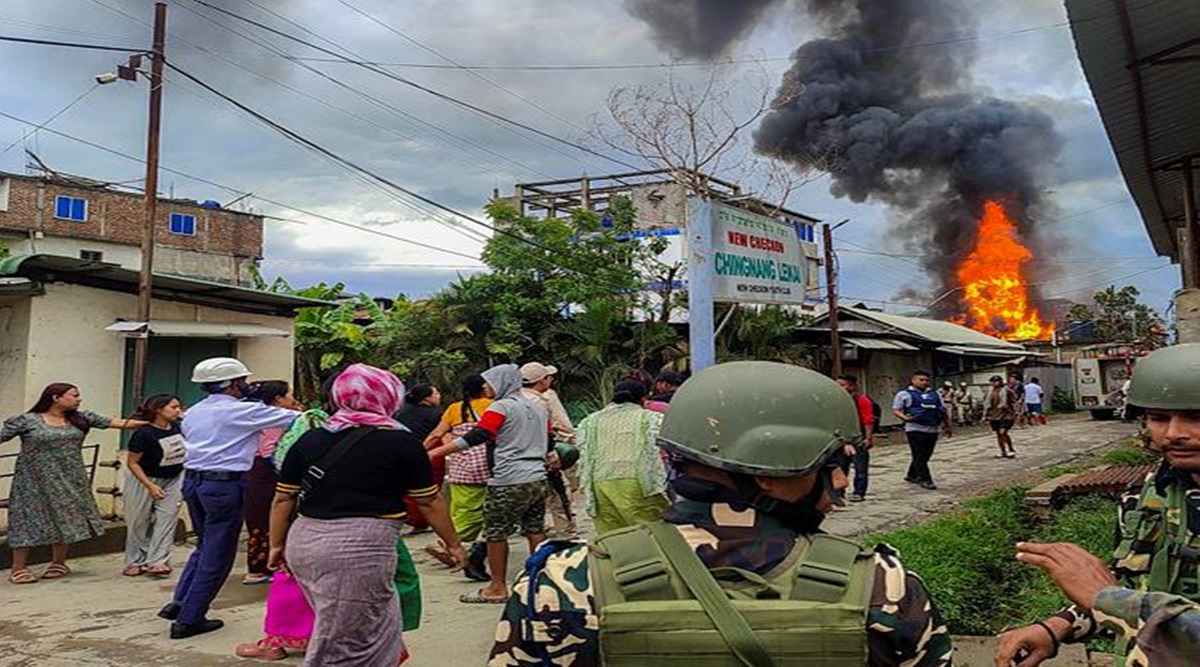Manipur Govt Extends Internet Ban till June 30 What You Need to Know

Manipur Govt Extends Internet Ban till June 30 What You Need to Know
In a significant development, the Manipur government has decided to extend the ban on internet services until June 30.

To preserve public order and tranquilly in the area, the Manipuri administration has announced an extension of the state’s internet ban for an extra five days till June 30. After presiding over a meeting with representatives from all political parties to discuss the situation in Manipur, Union Home Minister Amit Shah made this choice. Officials claim that the Army decided not to put people at risk and was able to conclude a standoff with a crowd headed by women.

The Itham hamlet in Imphal East, where members of the insurgent KYKL organization were hiding, was surrounded by security troops. After taking control of the guns and ammo, the Army ended the conflict without suffering any losses.
The existing restriction on internet services in the state of Manipur will now last an additional year. The decision has been made to avoid any disruption of the precarious peace order.

The state government extended the internet ban in consultation with law enforcement agencies and security forces. The authorities have cited the need to maintain public order and prevent the spread of misinformation as the primary reasons behind this move. The ban applies to mobile data services and broadband connections across the state.
The unrest in Manipur began with protests against the controversial Citizenship Amendment Act (CAA) and has escalated into a broader movement demanding greater autonomy and protection of indigenous rights.
The state has witnessed widespread demonstrations, strikes, and clashes between protesters and security forces. In such a volatile situation, the government has deemed it necessary to restrict internet access to maintain law and order.

Amit Shah revealed to the delegates of the all-party conference on Saturday that Prime Minister Narendra Modi has been closely following the situation in the troubled state of Manipur. Shah voiced confidence, saying things were progressively improving in the northeastern state and that since June 13, no one has died due to the unrest.
Following the all-party gathering, the Congress party, however, criticized the federal administration. According to party leader and former state chief minister Okram Ibobi Singh, Amit Shah refused to consider his ideas. Singh emphasized that reestablishing normalcy in the state was crucial and warned against making the situation political.

Singh said, “I suppose he didn’t want to listen when I offered my recommendations. I also noted that there was a better time to politicize the situation since the state needed to return to routine. I pleaded with him to grant me at least five minutes to discuss the matter, but he insisted we meet separately.
Manoj Jha, a member of parliament for the Rashtriya Janta Dal (RJD), stated that the general resistance revealed a lack of confidence in the person now in charge of Manipur. After Amit Shah called a conference with representatives from all political parties to discuss the current agitation in the northeastern state, Jha declared. Jha implied peace in Manipur could not be attained while the current ruler was in power, but without mentioning Chief Minister N Biren Singh.
To preserve public calm, the Manipuri administration has prolonged the internet blackout in the state as the Army ends a standoff without any deaths. The Congress party criticized the all-party gathering, which was presided over by Union Home Minister Amit Shah. Okram Ibobi Singh emphasized the need to return to normality and urged against politicizing the matter. Manoj Jha, a member of the Rashtriya Janta Dal, said he had little faith in the Chief Minister of Manipur, N Biren Singh, at the moment.

The extension of the internet ban has raised concerns among civil rights activists, journalists, and the general public. The absence of internet connectivity profoundly impacts various aspects of life, including communication, education, business, and access to vital services. The shutdown mainly affects Students who rely heavily on the Internet for remote learning and research. Access to online resources and communication with peers and educators is necessary for their educational progress.
Furthermore, the absence of internet access hampers the flow of information, making it difficult for journalists and media organizations to report on the ground.
The media is essential in sharing news and information, as it acts as a watchdog to hold the government accountable as the “fourth estate.”The internet ban restricts their ability to gather news, verify facts, and provide timely and accurate updates to the public.

As the internet ban in Manipur continues, the government needs to balance maintaining law and order and upholding the democratic rights of its citizens. The authorities should consider lifting the ban immediately while also adopting measures to address security concerns effectively. It is crucial to ensure that any restrictions on internet access are proportionate, temporary, and follow international human rights standards.




